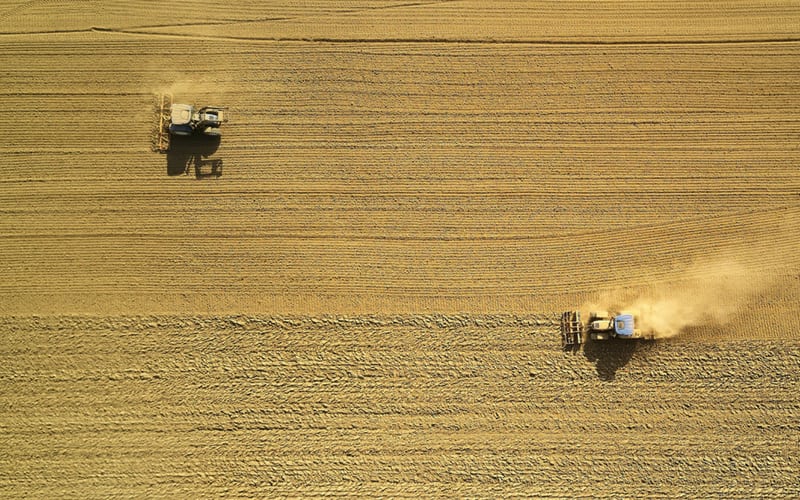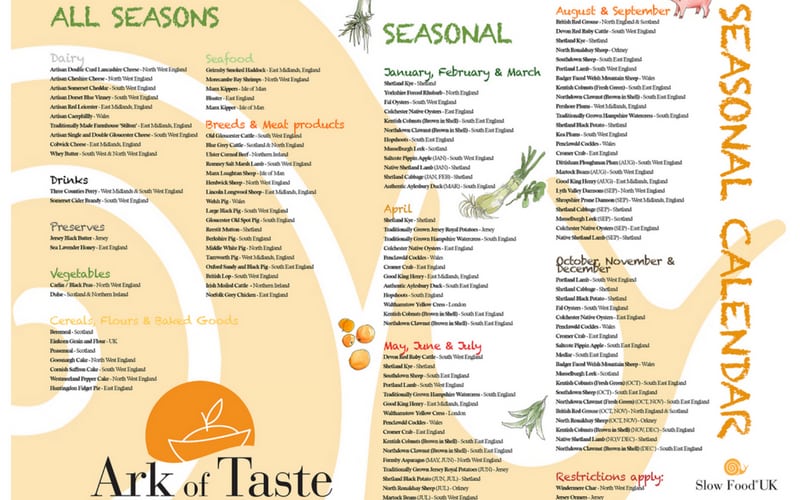What is the Slow Food Movement?
In a nutshell, the Slow Food Movement looks at the relationship between where food has been grown/produced and its journey to the plate. This grassroots movement has thousands of members the world over who celebrate the pleasure of food whilst also having a commitment to the environment and their communities.
Rising up as an alternative to fast food, the Slow Food Movement came about to preserve regional cuisine created using traditional methods, whilst also encouraging the farming of plants and livestock characteristic of the local ecosystem. Founded by Carlo Petrini in Italy in 1989, the idea of ‘slow food’ was formed with the aim of defending regional traditions, promoting fair food and celebrating a rich, slower pace of life.
What is the Slow Food Movement Philosophy?
The movement aims to highlight where food comes from and promotes the importance of biodiversity and good, fair, clean food for everyone. Whether highlighting animal welfare or working to improve the plight of farmers who experience land grabbing and unfair pay, the slow food movement is now a global phenomenon helping to create a fairer cleaner gastronomic journey for food and food producers alike. It encourages us to think more about where our food has come from and what environmental effects this could have on our planet. See more here:
Food Mileage and Why Slow Food Matters
When buying fruit at your local supermarket it’s likely that its origin is somewhere sunny like Spain or South Africa. Food travels further these days for three main reasons:
- People in the UK like to buy seasonal food all year round (such as strawberries in winter!)
- Processed food is still a permanent fixture in many homes and the processing requires added mileage for processing/packaging
- We don’t like to pay a lot for food, so producers battle to make their items cheaper than that of the competition
It’s crucial to consider how far our produce has come, and how much has it cost (not just in monetary terms but also the cost to the planet) to get from a farm on another continent to your shopping bag in the UK. It’s also important to consider the waste aspect and the carbon footprint involved in recycling and disposing of the packaging involved in creating your food.
The Slow Food Movement Highlights the Importance of Buying Local
Buying local has seen a resurgence in the UK thanks to initiatives such as the Slow Food Movement, and for good reason. Think not only of the environmental impact of long haul journeys, but the preservatives and other nasties which are required to keep that produce fresh whilst enduring its long journey.
Comparative labour costs is also one of the main reasons for growing food miles. For example, some British produce such as fish is now sent to China (where labour costs are much lower) for processing, then sent back here to be sold. Seems crazy right? This is where the Slow Food Movement comes in.
What Can We Do?
Thanks to organisations such as the Slow Food Movement, UK law states that all distributors, providers, wholesalers and retailers who sell food must clearly display the country of origin in full. This gives the consumer the power to make a choice about where our food comes from. We are armed with the information so can make a conscious decision to try to be more responsible consumers. Along with this, consider the following tips-
- Buying food with little or no packaging can make a huge difference to your imprint on the world, as can composting any food waste you create in the home. The average household throws away more than three kilograms of food and 14 kilograms of food packaging per week which all ends up in landfill if not disposed of responsibly so ensure that you do your bit.
- Buying your produce from local providers is the best we can do. Not only that, but where possible ensure that your produce is organic. Organic farming minimises the fossil fuels used to manufacture and transport the chemicals used in mainstream agriculture which all contributes to a cleaner healthier planet.
- Cook seasonal food which you have bought from a local farm shop, which you have walked to that day! This is something to which we can all aspire and something which will really help us to do our bit for the Slow Food Movement and our planet as a whole.
Take a look at seasonal produce for each are of the UK below:
If you champion the beliefs and goals of the Slow Food Movement why not tell us below how you live ‘slow food’ in your day-to-day life and share your slow food activities on our Facebook and Instagram!

